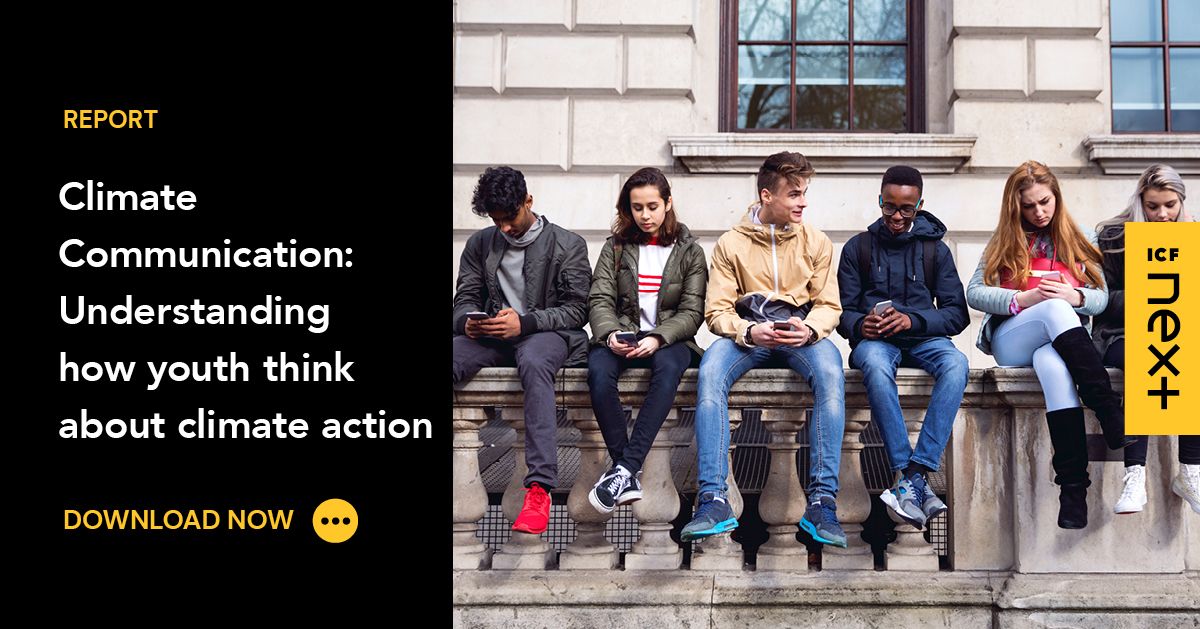
Tackling climate change by talking with Gen Z
Governments, businesses, and NGOs face a daunting challenge. In the midst of dealing with a global climate crisis, they’re also trying to communicate with the very people who will be most affected by climate change: Generation Z.
A new report by ICF Next explores the value of an empathic approach to communicating with Gen Z around the climate crisis.
Who are Gen Z?
They’re under-25s who have never known a world without social media. The climate is a very tangible issue for them and they don’t see it as something that will happen in the future—it’s impacting them now. They have experienced the hottest years on record in their lifetimes. They’re eager to be involved in climate crisis discussions but can feel like their voice isn’t heard.
Gen Z want to act quickly on climate change. Despite deteriorating economic conditions, high living costs, and financial anxiety, they’re investing in environmentally sustainable choices. They connect in ways that differ from previous generations. We need to talk with them, and not to them.
Shifting the conversation requires an open, multi-lens approach with the goal of embarking on two-way interactions that are based in partnership, equality, and empathy.
It’s all about getting engaged
What are the best ways to reach Gen Z?
Let’s look at the broad characterizations that are often made about this generation—that they have short attention spans, are disinterested in brand and corporate messaging, are overly dependent, are unable to make their own decisions or plan for the future. Moving beyond these often-inaccurate assumptions provides a more realistic assessment of Gen Z.
Engaging with this generation means looking at segmentation in new ways. It also means exploring how Gen Z have reassessed their relationship with social media as the COVID pandemic continues to unfold and how, as a group, they’re looking to foster a better sense of community online—one with greater cooperation and idea sharing.
Gen Z can be thought of as independent agents of change. For communicators, this means practicing active listening and collaborating on content that is relatable and authentic, rather than delivering messages about unachievable goals.
The good news for public authorities is that Gen Z represents a powerful resource in the fight against climate change—but they first need to be included in the conversation. Building engagement with them, harnessing their passion, and achieving real change through effective climate communications is key.

To learn how to reach and motivate Gen Z with empathy—including comprehensive dos and don’ts from ICF’s strategic communications experts—download the report.

